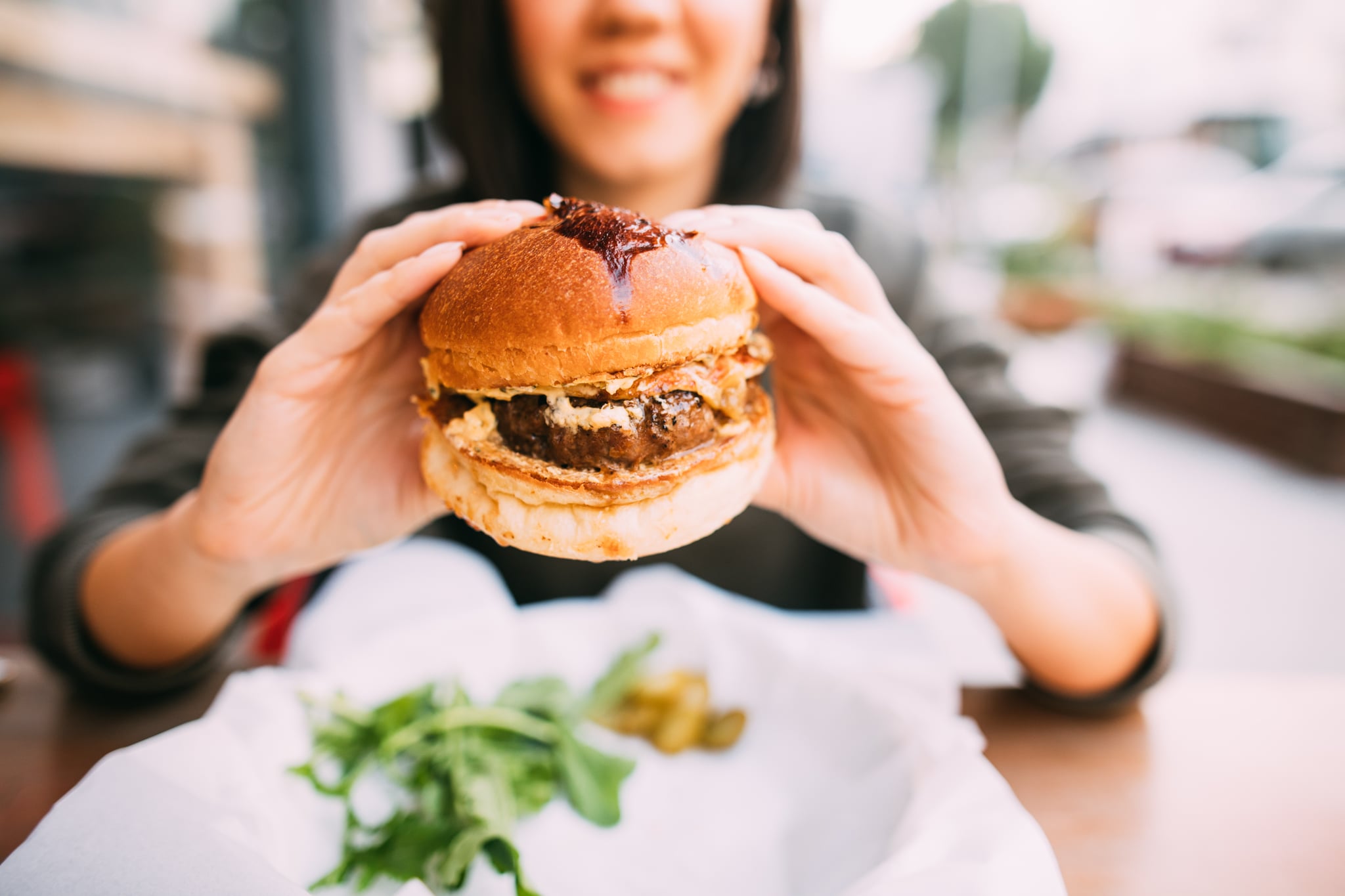How Much Fat Should I Eat?
Not Sure If You're Eating Too Much Fat? This Is How Much You Need, According to an Dietician

Fats are typically associated with being bad and weight gain, but we've got news for you: fats can actually help you lose weight. Plus, everyone needs a balanced diet that consists of all the macronutrients: protein, carbohydrates, and fats. To find out exactly how much fat you should be eating a day, POPSUGAR spoke to Avigdor Arad, PhD, RDN, CDE, director of the Mount Sinai Physiolab.
According to Dr. Arad, the limit does not exist, kind of. "What we know is that what's more important is the type of fat we're eating, and not so much the quantity," he told POPSUGAR. If you're familiar with the keto diet, you know it's a diet that's high in fat, moderate in protein, and low in carbs. "If you really think about it, as long as you stay within a normal, healthy calorie load, and you're a person who can process and metabolise and use fat very effectively, then you can eat a lot of fat as long as it's the healthy kind of fat," Dr. Arad explained.
What Are the Different Types of Fat?
Not sure if a cheeseburger is considered a healthy fat? According to Dr. Arad, monounsaturated fats, found in nuts, avocados, and vegetable oils, and polyunsaturated fats, found in salmon and walnuts, are healthy. Saturated fats are another type of fat that are typically found in animal byproducts like beef and chicken and in coconuts.
Depending on who you ask, you'll get mixed opinions on whether saturated fat is good or bad for you. According to Dr. Arad, monounsaturated fats and polyunsaturated fats are healthy, "but it really depends on how well your body is responding to how much you eat," he explained. In a previous interview with POPSUGAR, Nieca Goldberg, MD, medical director of the Joan H. Tisch Centre For Women's Health at NYU Langone Medical Centre, said that saturated fats can actually increase bad cholestrol. According to the USDA, less than 10 percent of daily caloric intake should come from saturated fats. Our advice: definitely speak to your primary care physician and a registered dietitian to determine the optimal amount of fat you should be consuming per day.
According to Dr. Arad, people following the paleo and keto diets tend to consume more saturated fats "but they can still remain very healthy." Generally speaking, people who follow vegan and Mediterranean diets typically consume more olive oil, nuts, and seeds, and as a result, "They have a higher intake of polyunsaturated and monounsaturated fats," Dr. Arad said.
On the flip side, trans fats, "a byproduct of processing food and mainly heating up or applying heat to vegetable oil — this is the worst kind of fat you can put in your body," he explained. According to the FDA, trans fats can be found in processed foods when hydrogen is added to vegetable oil, a process called hydrogenation — yuck. Baked goods made with vegetable oil, potato chips, fried foods, and some dairy-free coffee creamers all have trans fats in them. They're also found naturally in animal products like milk, butter, cheese, and meats, according to the FDA. Trans fats affect your vascular system and can induce stroke, heart disease, and cause heart attacks, according to Dr. Arad.
The Benefits of Eating Fats
First, Dr. Arad explained that fat is easy for the body to store, which means it's easy for the body to use for energy. "We have been eating fat for as long as we [have] existed . . . so the body is accustomed to processing fat very well," Dr. Arad said. Fats that comes from avocados, olive oil, fish, and meat, for example, are "packed with essential nutrients and vitamins that the body needs to maintain health and longevity," he explained. Other benefits of eating fats? Omega-3 fatty acids and omega-6 fatty acids; two essential fats that affect processes such as cardiovascular function that your body doesn't make.
Bottom line: "As long as you eat the right type of fat, fat intake can be quite substantial from your diet and you can still stay very healthy." There's no specific amount of grams you should consume per day, Dr. Arad explained, "because some people can eat 80, 100, 200 grams of fat a day, as long as it's the healthy kind." The biggest thing to make sure you're doing is staying within a healthy caloric intake regardless of how much fat you consume. If you want to know exactly how many calories you should eat in a day and an exact macronutrient split, we recommend speaking with a registered dietitian.








